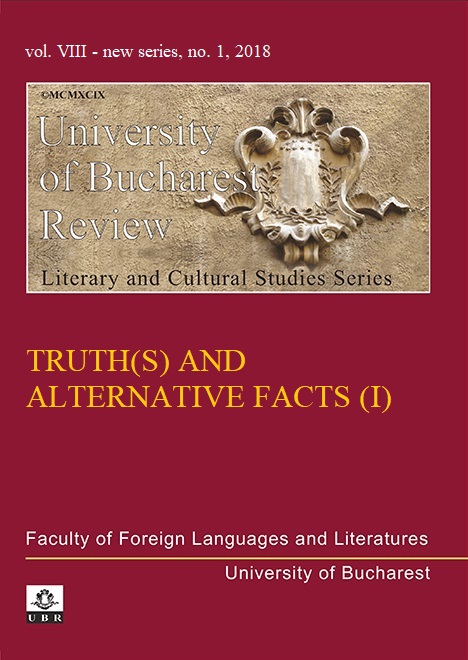RHETORICAL TOPICS AND ALTERNATIVE FACTS:
THE LANGUAGES OF TRUMP AND SHAKESPEARE
RHETORICAL TOPICS AND ALTERNATIVE FACTS:
THE LANGUAGES OF TRUMP AND SHAKESPEARE
Author(s): Michael HattawaySubject(s): Language studies, Studies of Literature
Published by: Editura Universităţii din Bucureşti
Keywords: commodification; provisionality; rhetorical redescription;
Summary/Abstract: I analyse the language of Donald Trump in the context of classical rhetoric and contemporary linguistic and cultural studies. His vocabulary is limited, and his capacity for sustained thought is concealed – his utterances are‘invented’ from a very restricted set of sources, and he pays scant attention to‘disposition’. His style and vocabulary are relentlessly populist and demotic. Two speeches by Shakespeare, that of the Bastard in King John on ‘Commodity’ and that of Troilus on ‘Instance’ in Troilus and Cressida, serve as touchstones. Today’s materialist culture has generated a near universal reification of language (a phenomenon investigated by Nietzsche), which has itself infected the way many people regard facts and ‘truth’. Trump has abandoned axioms for mantras, has created in his language a reductively simplified allegorical world, and instinctively resorts to the figure of paradiastole, rhetorical redefinition – for the use of which Machiavelli was, in his time, widely censured. He is guilty of countless fallacies generated by his use of unevidenced induction – based on a small number of instances. He is, however, of his time, and I have a concern that too many humanities curricula in higher education have overstressed ideology at the expense of ideas, and not done enough to foster an awareness of the nature of language as well as an epistemological vigilance among students.
Journal: University of Bucharest Review. Literary and Cultural Studies Series
- Issue Year: VIII/2018
- Issue No: 1
- Page Range: 3-15
- Page Count: 13
- Language: English

